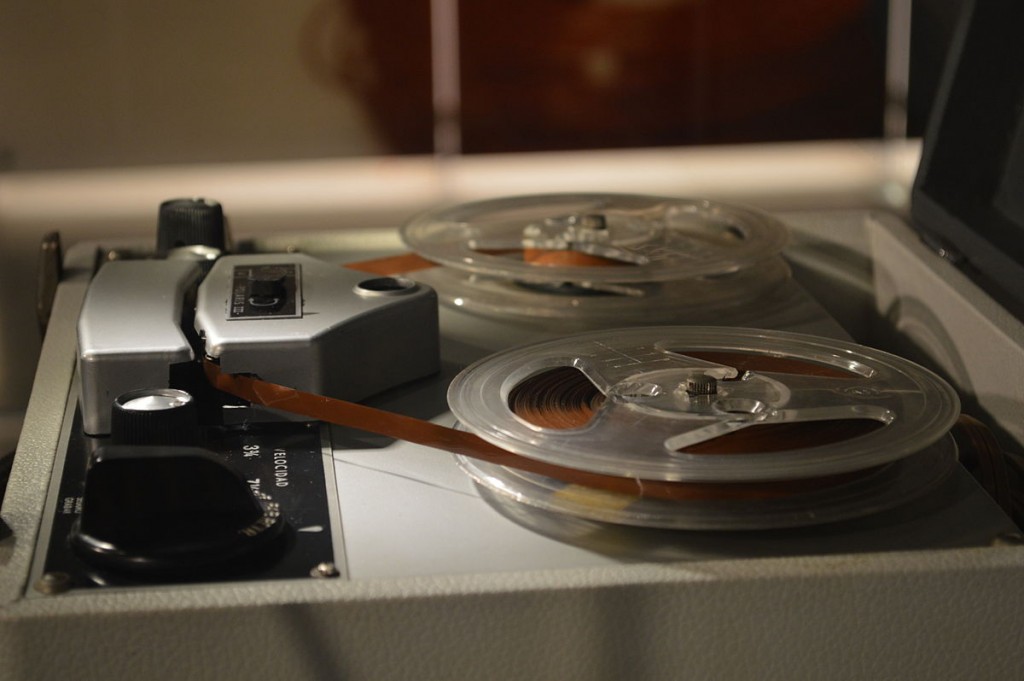As historians, how does the past speak to us, and when it does, how do we listen? These were the questions broached by the papers in the final session of the CLGBTH‘s conference-within-a-conference at the American Historical Association’s annual meeting. This session combined papers from the panels “Pragmatism and Audacity: Disrupting the Boundaries of Queer Identities, Cultures, and Politics through Oral Histories” and “Archives of Intimacy: Queer Affects and Cultural Imaginaries, 1970s-80s.” Three of the papers on this panel considered the relationship between the interviewer and narrator in the practice of recording queer history, while the fourth “listened” to television sitcoms from the 1970s and 1980s to argue that these communicated more subversive messages about queer sexuality than historians have recognized.

Historians of marginalized groups, including sexual minorities, often face problems in locating sources to ground their studies. Historians of twentieth-century queer life have often turned to oral history in order to uncover stories that may have been lost to paper archives. Others have turned to the archive of mass culture to understand how dominant ideas about sexuality have been constructed and reinforced—or subverted—through media. Both methods raise questions about the production of historical sources. In oral history, the historian herself takes direct part in creating a record of the past, but she does more than simply turn on a recording device and invite the narrator to speak. Because oral history is produced through an exchange between interviewer and narrator, the oral historian shapes the narrative itself, through the questions she selects and her rapport with the narrator. For this reason, we often say that interviewers and narrators have a “shared authority” in the practice of oral history. By the same token, we might ask who produced the mass culture texts that we mine for meanings about sexuality and, particularly when we read them as subversive, whether those texts were intended as such.
Jordan Biro, a doctoral candidate in history at the University of New Mexico and oral historian for the Bennett A. Hammer LGBT Archives Project in Albuquerque, presented part of her research on queer life in the Southwest. If the lives of queer people can be difficult to recover in traditional archives, this is perhaps even more true for queer people outside of big cities. Through excerpts of her interview with Vangie Chavez, a hispaña lesbian born in Santa Fe who moved to Albuquerque as a young adult to establish her own queer identity while remaining close to her family, Biro traced the ways that lesbians of color in New Mexico negotiated their queer identities “within the heteronormative spaces of family, church, and work.” In contrast to the coming-out narrative common to both popular culture and LGBT history, in which queer people leave their home and family in the rural hinterland to carve out a gay life in the big city, Biro found that in New Mexico gay bar culture developed in the hinterland itself, in sparsely populated rural areas rather than in dense “gayborhoods” or red light districts. In her presentation, Biro drew from her original oral history project about LGBT life in New Mexico, which will be housed at the Hammer Archives.
Chelsea Del Rio, a doctoral candidate in history at the University of Michigan, described her dissertation project: a history of lesbian feminism in California. In her paper, Del Rio argued that lesbian feminism was an array of social and cultural projects through which lesbians forged their own woman-centered existence. In particular, lesbian feminists worked through the women’s music scene to challenge patriarchy by building their own political and economic power through grassroots organizing at performances, and by demanding that female graphic designers and sound engineers be hired to work on their projects. Del Rio thus describes a much more flexible, creative, and complex lesbian feminism in the 1970s than historians have yet recognized.
Rachel Gelfand, a doctoral candidate in American Studies at UNC Chapel Hill, discussed the archive as a potential space for radical affective connection that is also linked to state power and respectability politics. Gelfand began her presentation with a story about running across the papers of Vicki Gabriner, her lifelong friend and mother figure, while working in the records of the Atlanta Lesbian/Feminist Alliance (ALFA) at Duke University’s Sallie Bingham Center. Gabriner’s relationship with Gelfland allowed Gelfand to conduct unique participatory research. They went to archives together to read through documents of Gabriner’s political activity. During their visit, Gelfand conducted “oral-history-in-spurts,” writing down notes in her field journal and snapping iPhone photos as the conversation with Gabriner jumped from present to past. According to Gelfand, this style of oral history produced a less-than-complete record of their exchange, but at the same time yielded an exchange full of affective connection and stories that might have been left out of a more chronological narrative. Her research and method thus raised questions about oral history practice and the relationship between interviewer and narrator in creating new archives.
In keeping with Gelfand’s participatory research, Gabriner also attended the panel, and offered a short response to her friend’s paper. Gabriner introduced the concept of yerushe—a Yiddish word used to describe one’s spiritual legacy and life’s lessons—to capture her relationship to both the ALFA records and to Gelfand. Given Gelfand’s own examination of radical archiving and interviewing, perhaps yerushe offers a counterweight to the notion of “shared authority,” which emphasizes mutuality in the interview relationship but nevertheless underscores the oral historian’s power to shape the resulting narrative.
Sascha Cohen presented a piece of her project on women’s and gay liberation in humor. Like the first three papers, Cohen’s work derives from an unconventional archive: television sitcoms. Through close readings of episodes of Maude, All in the Family, Alice, and others, she argued that these shows were more subversive than historians have generally recognized. Here sitcom writers invited audiences to laugh not at the gay men they portrayed, but at the homophobia of straight men. Cohen concluded that by undercutting expectations about gender performance and sexuality, sitcoms rendered the sexualities of all men suspect while simultaneously expanding representations of gay men on the small screen beyond the sissy stereotype.
These papers encourage us to reconsider where we “place” queer history—some in terms of where we look for the queer past geographically, and all in terms of where we look for evidence of its existence. Finding stories about the queer past in new places furthermore requires looking to sources outside of traditional archives. As with oral history, this may mean creating new archives where none existed before. There, at the point of exchange between past and future, we find ourselves not only as the interpreters of others’ legacies, but as creators of a new yerushe, born of our promiscuous interdisciplinarity.
 Dan Royles is a visiting assistant professor of history at Richard Stockton College of New Jersey. His research focuses on the politics of the body and social movements in recent American history. He is currently working on a book manuscript, oral history project, and digital archive dealing with the political culture of African American AIDS activism. Follow him on Twitter @danroyles.
Dan Royles is a visiting assistant professor of history at Richard Stockton College of New Jersey. His research focuses on the politics of the body and social movements in recent American history. He is currently working on a book manuscript, oral history project, and digital archive dealing with the political culture of African American AIDS activism. Follow him on Twitter @danroyles.

NOTCHES: (re)marks on the history of sexuality is licensed under a Creative Commons Attribution-NonCommercial-NoDerivatives 4.0 International License.
Based on a work at www.notchesblog.com.
For permission to publish any NOTCHES post in whole or in part please contact the editors at NotchesBlog@gmail.com





Hi, Marion Wasserbauer at our University of Antwerp is also doing a similar project involving queer and digital archive. It’s about the role of music in LGBTQ lives and identities in the Flemish context (Belgium). Check out her project’s website at: http://queervoices.be/